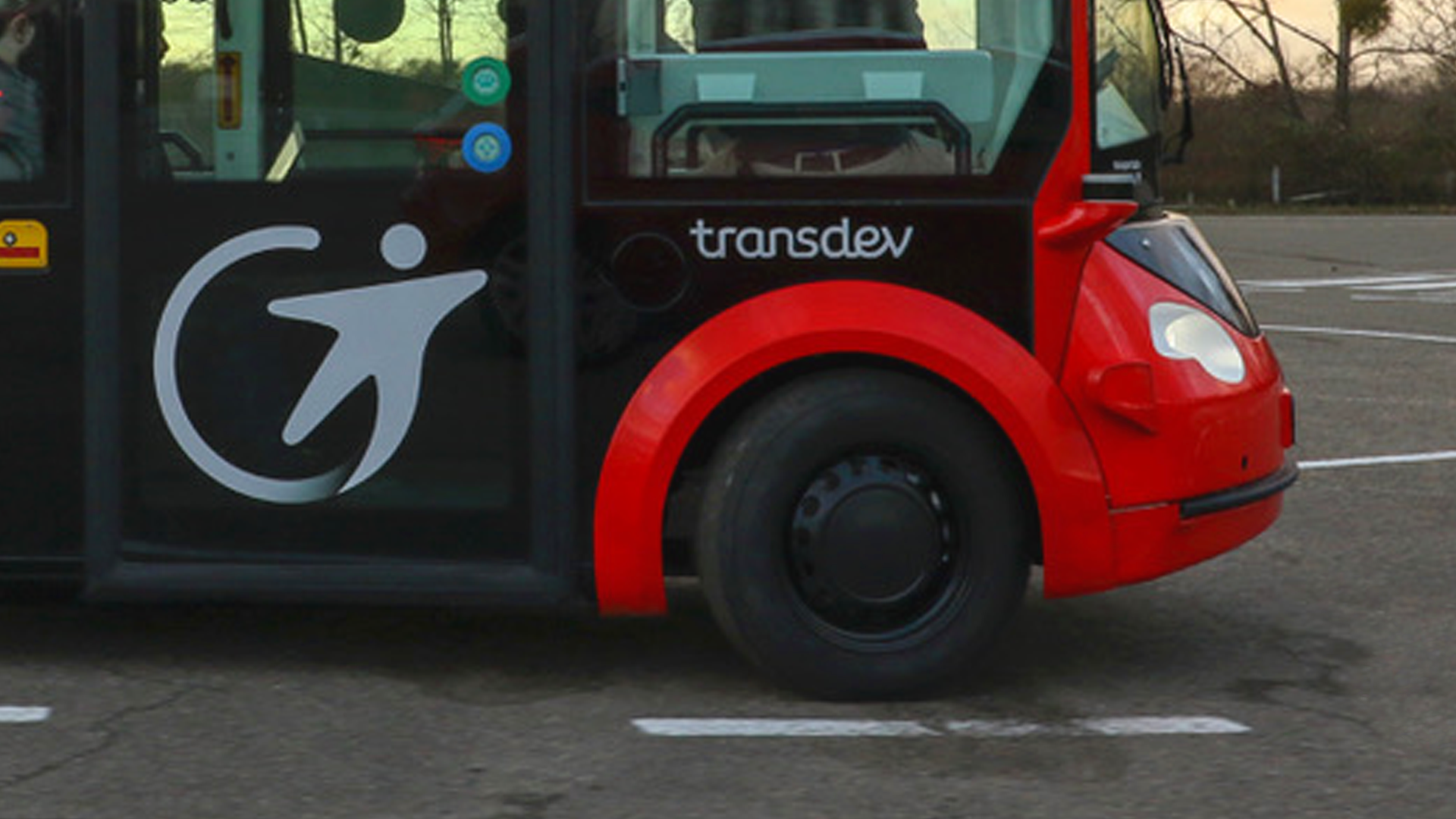January 7, 2019 — Las Vegas
Torc and Transdev Partner to Develop Technology for i-Cristal, a Shared and Fully Autonomous Shuttle

Torc Robotics, a leading autonomous technology provider, and Transdev, operator and global integrator of mobility solutions, are partnering on a fully autonomous shuttle platform. The partners are integrating Torc’s L4 Asimov self-driving software into the i-Cristal’s embedded intelligence system.
The companies announced their partnership Monday during a news conference at CES19 in Las Vegas, with accompanying video showing on-road testing in France.
Torc is licensing its Asimov self-driving software stack and sensor suite architecture for the i- Cristal autonomous shuttle. The partners agree that shuttles and smaller vehicles will provide complementary mobility to existing public transportation networks around the world. The shuttles also provide an ideal opportunity to introduce autonomous vehicles into public use.
“Our partnership brings together two companies with a similar vision for the future of autonomous mobility,” says Michael Fleming, Torc CEO. “We believe that shared mobility will be one of the cornerstone applications that lead the way to mass adoption of self-driving consumer vehicles.”
Transdev, through its global Autonomous Transport System (ATS by Transdev), is providing its supervision system, connected infrastructure and client application, and embedded technology. The companies say their first priority is to ensure the safety and comfort of passengers as well as provide high-quality service.
The Transdev/Lohr i-Cristal electric shuttles are SAE Level 4 (fully-autonomous in select areas) and operate without a steering wheel or pedals. The integration of this latest technology will allow i-Cristal to seamlessly blend into urban traffic while maintaining the highest safety standards at speeds of up to 19 mph/30 kph.
“At Transdev, we believe the future of mobility is increasingly P.A.C.E.: Personalized, Autonomous, Connected and Eco-Friendly,” says Yann Leriche, Transdev’s North America CEO and Head of Autonomous Transportation Systems. “We believe that public transport will lead and be the first place real autonomous services will be developed. With Torc’s expertise in autonomous technology, we will accelerate our capability to develop innovative solutions.”
The i-Cristal autonomous shuttle was first unveiled in September 2018 by Transdev and Lohr, a leading French industrial company with more than 50 years of worldwide industrial experience in manufacturing vehicles. The i-Cristal has a maximum capacity of 16 passengers and is designed for ease of access, interior design, and passenger experience.
The partners plan to begin testing on closed courses and public roads in January 2019 before providing public service trials in two locations in France: Paris-Saclay1 and Rouen2.
In Paris-Saclay, the shuttles will operate in a dedicated lane offering a shared-ride mobility service at night and off-peak hours between the Massy transit station and the Paris-Saclay campus. In Rouen, the shuttles will operate on public roads offering a shared-ride mobility service throughout the business park and connecting to the tramway station.
The objective is to integrate fleets of autonomous i-Cristal shuttles into existing Transdev public transportation networks as a complement to extend the geographical coverage or time schedule.
The Torc and Transdev partnership combines the expertise of one of the oldest autonomous technology firms and one of the world’s largest mobility providers.
Torc has been developing self-driving vehicle technology since 2005 in on-road and off-road applications. Most recently, the company has implemented its Asimov self-driving car technology in Lexus RX and Chrysler Pacifica vehicles. The vehicles successfully logged robotic testing in more than 20 U.S. states while operating on both public roads and closed courses with zero accidents. Torc’s autonomous vehicle technology has successfully navigated heavy urban traffic, aggressive tailgating, heavy rains, snow and highway detours.
“Ultimately our goal with developing self-driving technology is to save lives and make transportation more affordable and efficient,” Fleming says.
Transdev, which provides 11 million passenger trips per day, operates in 20 countries and is committed to leading the way in mobility services by using fleets of shared autonomous vehicles that meet the highest standards for safety, quality of service and customer experience. With 3.5 million passengers transported in autonomous shuttles and 1.6 million km (1 million miles) traveled across Australia, Canada, France, Netherlands and the United States, Transdev is the leader in operating shared autonomous mobility services.
“We are committed to testing out new kinds of mobility and giving our customers the best possible solutions to meet their travel needs”, Leriche says. “With autonomous transport services, we aim to develop flexible, clean and accessible mobility solutions to empower passengers to move freely.”
1 The partners of the EVAPS project are Renault Group, Transdev Group, Vedecom, SystemX, Université Paris-Saclay and EPAPS.
2 The partners of the RNAL project are Métropole Rouen Normandie, Région Normandie, Caisse des Dépôts Group, Transdev Group, Renault Group and Matmut Group.
About Torc Robotics
Torc Robotics, headquartered in Blacksburg, Virginia, offers a complete autonomous software solution for mobility applications like self-driving cars and transit by working with partners in automotive, transit and technology. Torc also provides self-driving technology in safety-critical environments like defense, mining, and agriculture. Founded in 2005, Torc has integrated its self- driving solutions on ground vehicles ranging from SUVs to 300-ton mining trucks.
Torc’s self-driving cars successfully logged robotic testing in more than 20 states while operating on both public roads and closed courses with zero accidents. The testing included a coast-to- coast trip across the United States and extensive driving in densely-packed streets such as those located in Las Vegas, Nevada. Torc recently announced a new demo platform with commercially viable components implemented on a Chrysler Pacifica.

